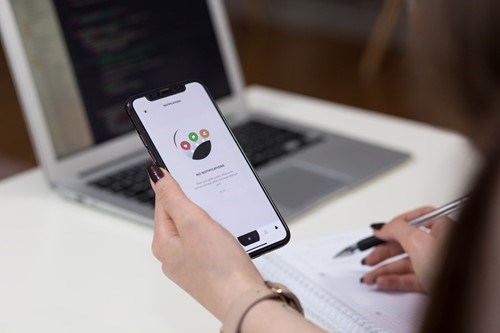In today’s digital landscape, mobile applications have become a vital tool for businesses seeking to connect with their customers. However, developing a mobile app that not only attracts users but also keeps them engaged can be a challenging task. Here’s a comprehensive guide on how to create a mobile app that captivates your audience and drives ongoing engagement.

Table of Contents
Toggle1. Understand Your Target Audience
Before you start developing your app, it’s essential to identify and understand your target audience. This step will inform every aspect of your app, from design to functionality.
- Conduct Market Research: Gather data on your potential users’ demographics, preferences, and behaviors. Use surveys, interviews, and analytics tools to gain insights into what they want from an app.
- Create User Personas: Develop detailed profiles of your ideal users, including their goals, challenges, and motivations. This will help you tailor the app to meet their needs.
2. Define Clear Objectives
Having clear objectives will guide the development process and keep your project focused. Ask yourself:
- What problem does the app solve?
- What features are essential for achieving this?
- How will you measure success?
Defining specific goals, such as increasing user retention or driving in-app purchases, will help you prioritize features and design elements.
3. Focus on User Experience (UX) Design
User experience is critical in keeping users engaged. A well-designed app should be intuitive, visually appealing, and easy to navigate.
- Simplify Navigation: Create a clear and straightforward navigation structure. Users should be able to find what they need without frustration.
- Design for All Screens: Optimize your app for different screen sizes and resolutions. Ensure that buttons and text are easily readable and accessible.
- Prioritize Speed and Performance: Users expect apps to load quickly and perform smoothly. Optimize your app’s performance to minimize loading times and crashes.
4. Create Compelling Content
Engaging content is essential for keeping users interested in your app. Consider the following strategies:
- Offer Valuable Features: Identify core functionalities that provide value to your users. Whether it’s personalized recommendations, educational resources, or entertainment, ensure that your app meets user needs.
- Incorporate Gamification: Introduce game-like elements such as points, badges, or leaderboards to motivate users and encourage interaction.
- Utilize Push Notifications: Send relevant and timely push notifications to keep users informed about new content, features, or promotions. However, be mindful of frequency to avoid overwhelming users.
5. Foster Community and Social Interaction
Building a community around your app can significantly enhance user engagement.
- Enable User Interaction: Allow users to connect, share, and collaborate within the app. Features like chat functions, forums, or social sharing can foster a sense of community.
- Encourage Feedback: Create channels for users to provide feedback and suggestions. This not only helps improve your app but also makes users feel valued and heard.
6. Implement Analytics and User Feedback
To continuously improve your app, it’s crucial to monitor user behavior and gather feedback.
- Use Analytics Tools: Implement analytics tools to track user engagement, retention rates, and behavior patterns. This data will help you identify areas for improvement.
- Regularly Update Your App: Based on user feedback and analytics, make necessary updates and improvements to your app. Regular updates show users that you are committed to enhancing their experience.
7. Promote Your App Effectively
Once your app is ready, promoting it is key to attracting users and driving engagement.
- Utilize Social Media: Leverage social media platforms to create awareness and buzz around your app. Share engaging content, behind-the-scenes insights, and user testimonials.
- Offer Incentives: Consider offering promotions, discounts, or exclusive content to encourage users to download and engage with your app.
- Leverage Influencer Marketing: Partner with influencers in your industry to reach a wider audience and gain credibility.
Conclusion
Developing a mobile app that engages users requires careful planning, attention to detail, and a deep understanding of your audience. By focusing on user experience, creating compelling content, fostering community, and continuously improving your app based on feedback, you can create a product that not only attracts users but keeps them coming back for more. In a competitive market, engagement is key to the success of your mobile app, so invest the time and effort to ensure it resonates with your audience.


No responses yet